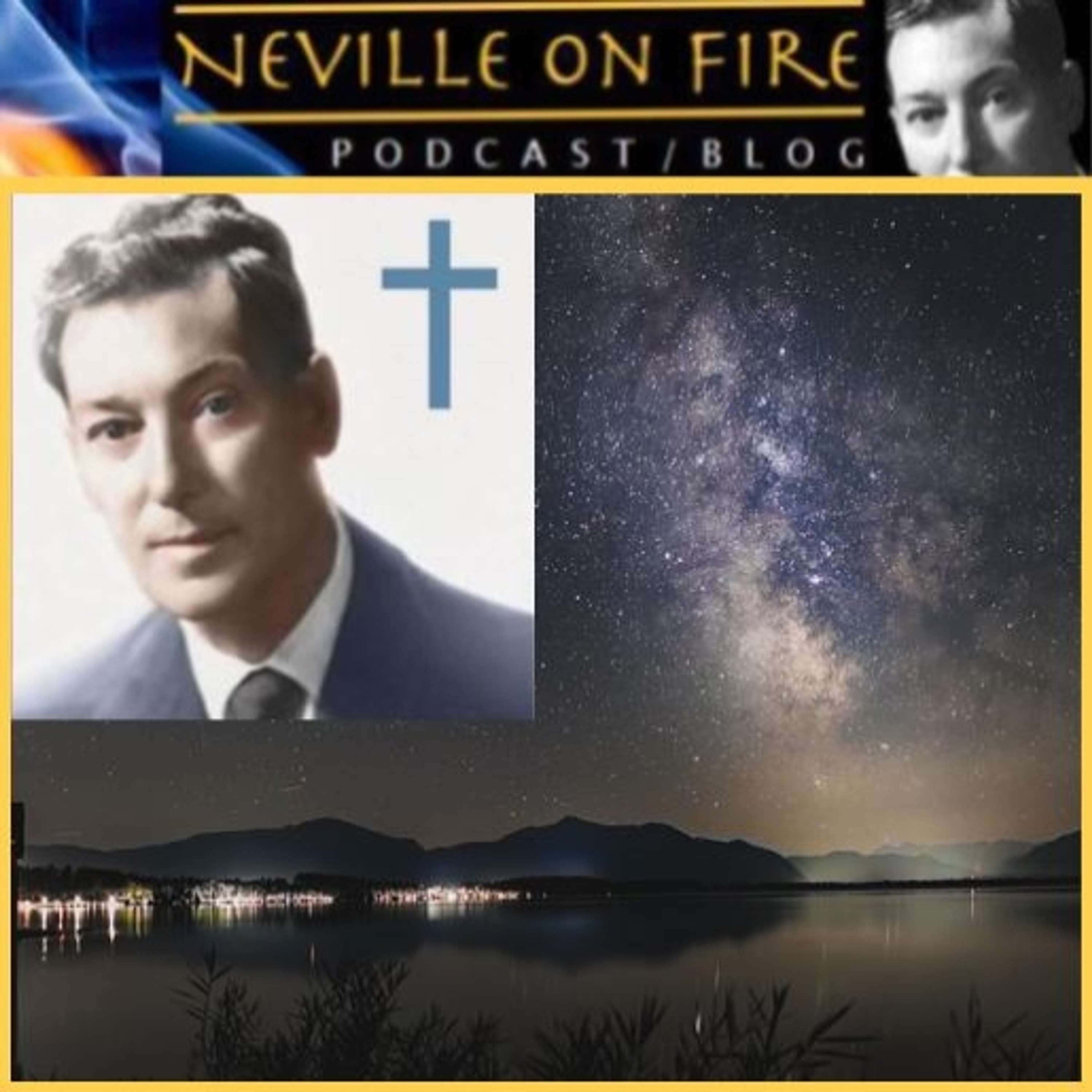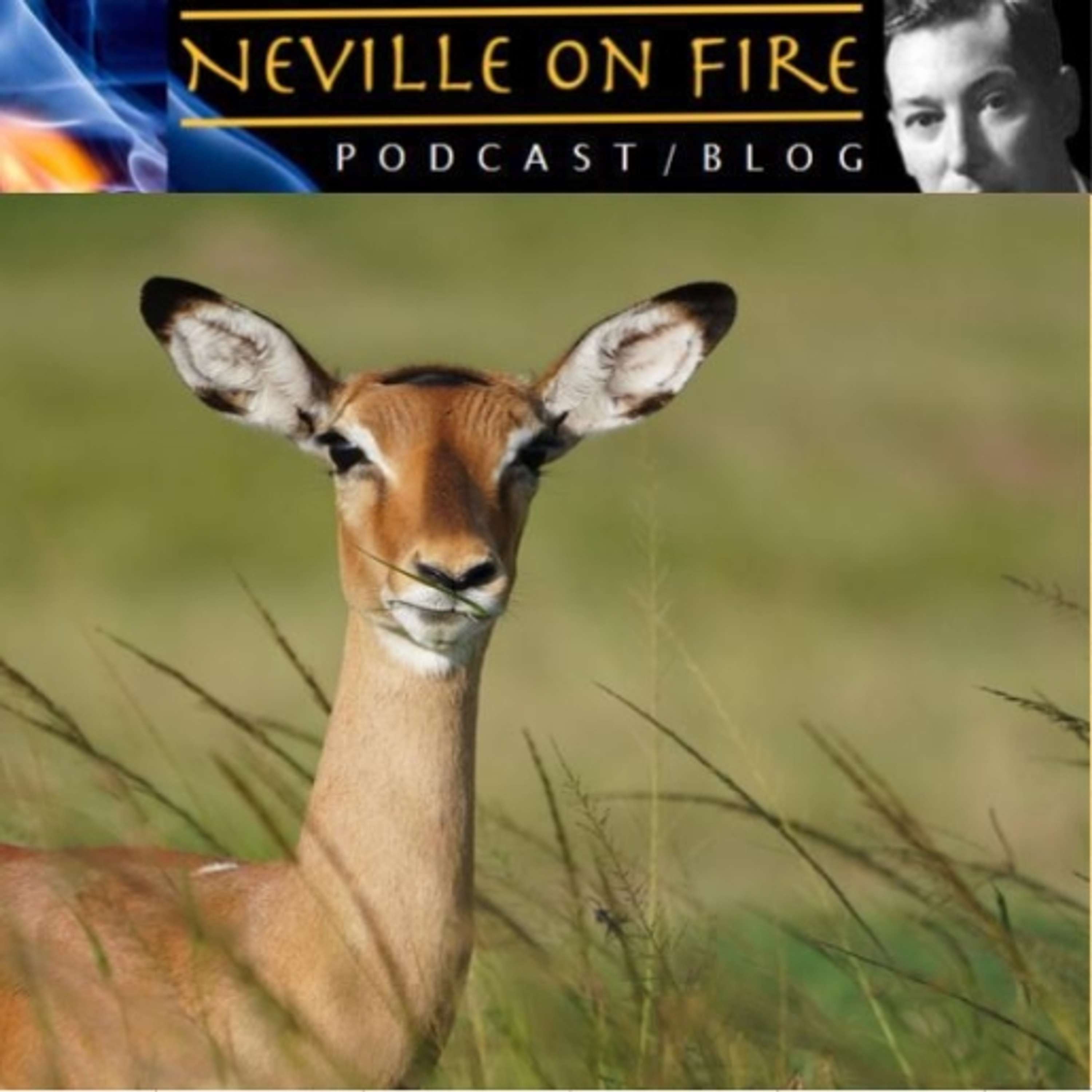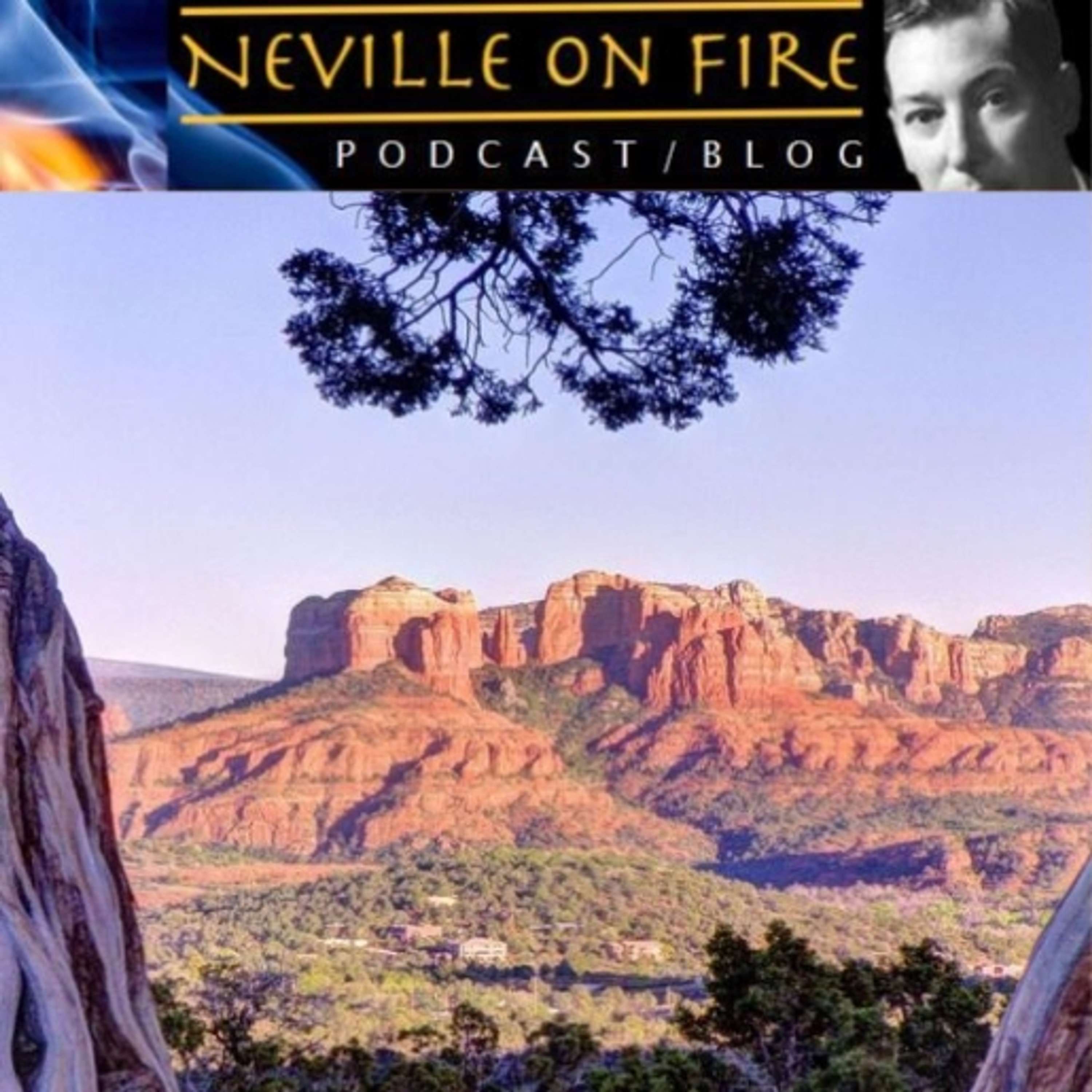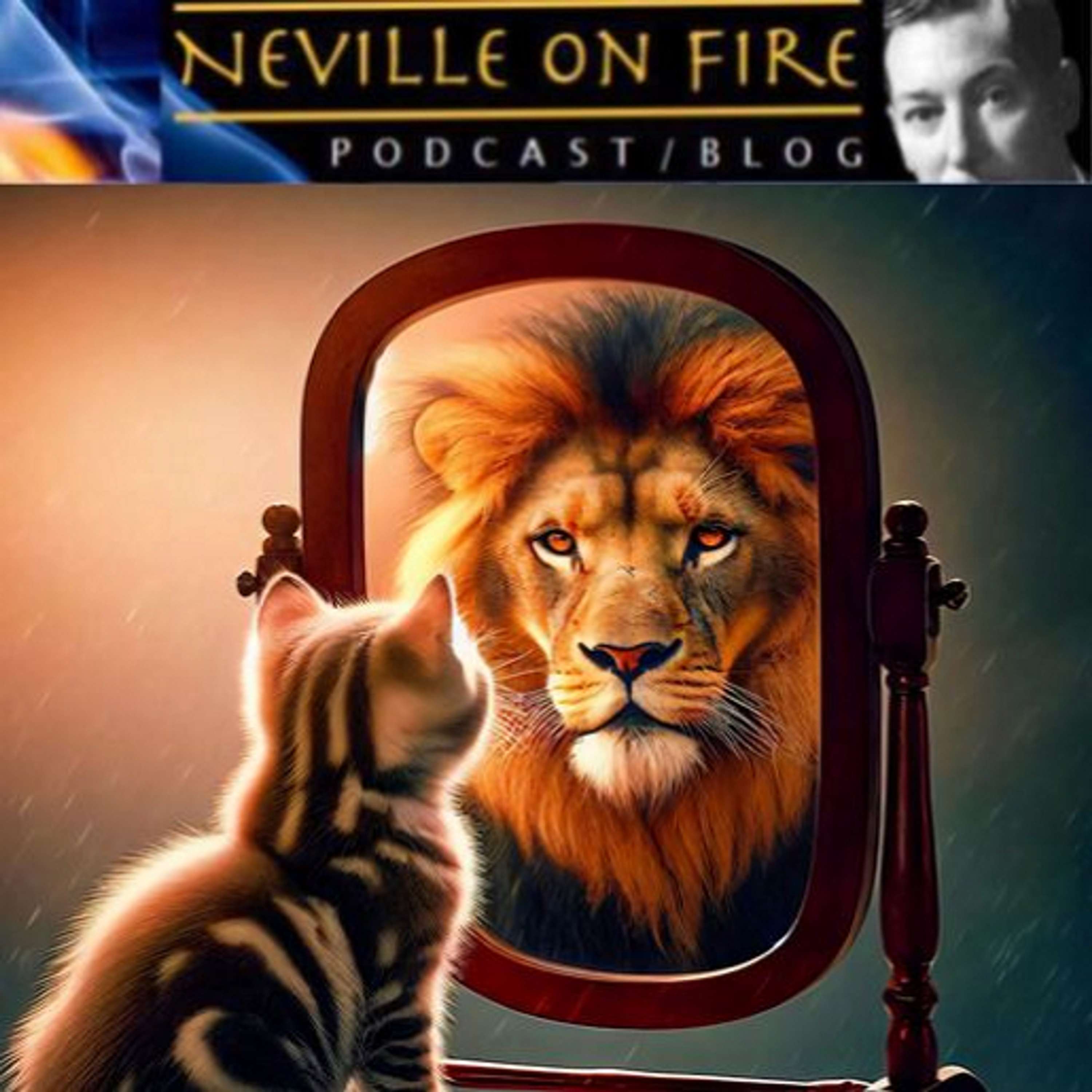Show Notes
Introduction
Let’s consider the idea of self-creation. We can see the intersection of the ideas and instructions of authors: Neville; Rolf Alexander; Maurice Nicoll; Eckart Tolle.
1. Neville: awakened imagination -- expanded definition
2. Alexander: self awareness as the life’s purpose
3. Nicoll: if there is truth within us, there is a lot that is superficial to it
4. Recent example of dysfunction
5. Our own parallel experience
6. Nicoll’s explanation: the release phenomenon (i.e., subjection to lower level mental function)
7. Approaching the work as one of our usual projects -- a future goal in time
8. “The power of now” and “The creation of now”
9. The consciousness (the imagination) is not in time, it is timeless
10. Daily experiences -- negative release into chaos.
11. These are subject to conscious noticing and positive release (Sedona method -- see E013).
12. The only way to consciousness is to go consciously; and we are hoping for grace.
13. Is this all just a mind game, or are we attaining to something more real?
14. How far away from our conscious goals we stray.
15. Conclusion: stop continual reacting and start continual creating.
Summary
KEY QUOTE
“Change of being is not a patchwork process.” (Nicoll, M. Living Time p. 234)
RESOURCES
Repeated:
Neville, (1954) Awakened Imagination & The Search
Alexander, Dr. Rolf (1956) Creative Realism
Nicoll, Maurice (1952) Living Time and the Integration of the Life
Show Transcript
E14
[edited for clarity]
This is E14, Self Creation.
Our consideration of ideas, methods, techniques, difficulties as we continue along this path ultimately leads to a circling back around to first principles. And it comes to the creation of the self self creation. Following on the idea that conscious development, conscious evolution can only occur consciously, it can't occur in any other way.
This is where we find an intersection of the ideas, suggestions and instructions from several authors (we've already quoted) to support our exploration of Neville's ideas.
Neville himself insists upon the awakened imagination, as opposed to the unawakened imagination. His use of the word imagination, of course, is not the usual connotation. It has to do with withdrawing from the outer sensory world and locating oneself within.
In the same book where Rolf Alexander gives the exercise and selfawareness that I had recommended back in E1, he suggests to us, let us take this project, this idea of attaining consciousness, objective consciousness, and make that our life purpose.
Along a similar line of thought, author Maurice Nicoll says, if there is buried in us a sense of the truth, we must admit that there is a great deal superficial to it that fights against it.
Now the spirit of self awareness, self consciousness that underlies, that informs the ideas from these three authors that I've just outlined -- this was brought home to me the other day. A friend of mine who is a caregiver was describing to me her experience with one of her patients, one of her clients. And this person is suffering from some sort of neurological disorder. I don't know exactly what it is, but the person is undergoing suffering from sort of a chaotic, disruptive and tortured existence, where everything has to undergo a literal interpretation. Every incident, every event that occurs moment to moment, receives the same degree of sort of a tortured, intense scrutiny without any capacity to relax and see the wider picture, or to properly perceive and have empathy for surrounding people.
This whole picture reminds me of Nicoll's explanation -- he was a psychologist, a neurologist -- his explanation of the release phenomenon. What he meant by that was to say that a person's neurology is made up of a structure, layers of functioning. And if the higher layer is somehow damaged or not being utilized, then the person is “released” -- not in a positive way, this is a different use of the word -- released into a lower function, where they're going to be chaotic, disrupted, and so on, as I've described.
While we might feel pity for that client, for that patient, it's actually sort of a projection, because we ourselves are experiencing a release phenomenon. That was Nicoll's insight, his perception. We ourselves in our normal waking state are experiencing a fragmented consciousness, a disrupted, chaotic sort of existence, and it's simply a matter of degree.
Well, Nicoll goes on to explain that in traditional neurology and medicine and so on, they don't have any conception of latent higher functions existing within man. It's all sort of materialist, evolutionist thinking. And that's why he needed to seek out a new sort of teaching that explained that there is a latent conscious function in man, but you have to reach for it.
To escape from this release into chaos, you have to consciously and continually expose yourself to higher ideas, to strive for a higher level in oneself. So exactly in that sense, we are self creating, we are self developing.
The question arises, wasn't all of this evident at the outset when we started this podcast series? The fact is, we have to circle back around, as I was saying, to first principles and revisit, re-teach ourselves certain things. And I'm pointing here especially to conscious experience.
The thing is that it's very easy for us to fall into sort of a trap of thinking that what we're doing in entertaining new ideas and taking on a new study, and so on, we're acquiring things and working towards a future goal. And that's entirely natural, because that's the way we've done everything since day one, according to our training.
And yet in this project for objective self consciousness, the whole thing is a reversal. It has nothing to do with acquiring something at a future or later date. It has to do with reaching for something in the present moment.
That is not to say that we wasted our time in considering the ideas, the foundational principles -- that's all groundwork and preparation to lead you to a certain point.
Well, let's take, for example, the title of that book by Eckart Tolle, The Power of Now. You might think that was revolutionary. Well, one of the chapter titles in Nicoll’s book, published back in 1952, was The Creation of Now.
Tolle is very good, and I've listened to quite a lot of his stuff -- very helpful. The word “now” in our normal thinking will indicate a portion or a component of time. So time goes from the past to “now” to the future. So our thinking about the word now is a little bit misleading.
Nicoll points out that what now means is really to be outside of time. That's the confusing thing about being a human being, because the seeming external world is in a sort of procession that we perceive as time. And yet our own consciousness, which is turned at the same time inward to the inner life, is not subject to time. It's not in time, it's time-less.
So this leads to a reconsideration of our daily experience and a reinterpretation of what we're doing in this work. We're going to be experiencing on the one hand, the negative release phenomena, as Nicoll described it, in other words, sort of an abandonment by the higher level (since we're not attaining it or striving for it) into a chaotic, fragmented, frustrated existence. And at the same time, once we come to realization, come to consciousness, come to self awareness -- then we can employ the release phenomenon. Now here I'm using the word in the positive sense, the way we learned about it in the Sedona method (see E13 for an explanation of that): a conscious release of negative emotion, a conscious release of an identification with the outward situation. And there, right away, we're coming to our senses. We're on a higher level and no longer harassed by external circumstances.
All right, so let's walk through a few examples of how this can play out on a daily basis.
If I wake up in the morning and I've got an underlying vague feeling of depression, or feeling blue, or something like that -- feeling defeated, feeling like things are hopeless -- and the amplitude, the volume of this may be turned down very low, but it's still there in the background. And if I don't notice that, then right there I've been negatively “released” (in Nicoll’s sense) into this negative aspect of the psyche. That's going to be controlling and affecting my attitude throughout the whole day.
On the other hand, if I do notice it, and I use the Sedona technique to release that feeling, then right there I'm engaging in self creation.
Going on from there: if I read some headlines a little bit later on in the day on my phone or on my computer, and they turn out to be things that are contrary to what I had really hoped for, then I can be disappointed quite easily. But then what has happened right in that moment? I've forgotten. What did I forget? I forgot that life is not soluble. It's not resolvable in terms of itself. It can't be solved in terms of itself. It's an exercise. It's a training ground for image making. So I forgot myself. And I also forgot the disciplines of mind that we talked about in E5.
But if I catch myself, then I'm going to be employing the discipline of mind, the disciplined denial and the affirmation of what I really want. And so I'll be carrying out conscious self creation.
Now I might even be subject, through illness or through some other factor that I'm not aware of, to extraordinary confusion, brain fog, as they call it. I might convince myself that I feel tired, I'm exhausted, that I've had enough. I've reached the end of my tether. And what has happened when I'm carried away by these feelings? I'm reverting quite naturally and easily back into a former worldview which says that I'm at the mercy of external events. There's an independently existing external world which has me in its grip. And this is all scarcely realized: it's a state that has me in its power, a state that is a background attitude that is coloring and affecting everything else. That's the thing about attitudes! They're not observable directly. They're only observable by the results, by the inner talking that they give rise to.
But as I become more practiced with this, and as my determination gets stronger, and my understanding gets better, I'm going to catch myself and drag myself out of this hole.
Now, in all this, of course, we're relying on or appealing to, hoping for Grace and for higher influences to come in and help us out, but we have to make the effort ourselves. It makes a great deal of sense to say that the only way to achieve consciousness is consciously.
Now, is this all just an artificial mind game, or are we actually striving for something that is objectively at a higher level, fundamentally more real? Each person is going to have to evaluate for himself or herself what's going on here.
Am I able to orient myself to life in a more vital way? Am I more aware of myself? Do I feel more empowered? Do I feel like I'm growing? Or do I feel as if I'm being disconnected from the reality of things? Am I shutting myself away? Am I avoiding? Am I going downhill? In a word, am I regressing or am I attaining to higher consciousness (and so getting closer to truth)?
Well, I think we've all had enough experience in this to know that it's just extraordinary how far astray we can be led by ourselves, by our own experience -- in social situations, in the events of the world, in life altering circumstances, and so on. We can be led so far from our originally conceived conscious goals, our own best ideas of what life is, what we are all about, what our conscious project is all about. We get so easily swept away and submerged in the events of ordinary life. The only comment I have on that is I want to do the reversal: I want to effect in myself the change whereby I'm no longer reacting continually to the seeming external world, and instead I'm creating from within. That will be self creation.
So you might listen to all this and say, well after all, we're all human. We can't expect to live in an enlightened state, 24/7 and we're going to be subject to all kinds of human foibles, and forgetting ourselves, and experiencing aspects of our subconscious that are coming up to the surface, and so on. Of course, I'm going to agree with all that.
At the same time, I think you'll find naturally that you're going to gravitate away from certain things that simply don't serve you anymore, that are harmful and you recognize it. On the one hand, you no longer take pleasure or are amused by certain things that might have entertained you before, and there's nothing wrong with recognizing that change in oneself. At the same time, you're going to maybe increase in your sense of humor and enjoyment of other things that you hadn't suspected.
Summary
I can try to summarize today's episode. The first thing we looked at was an intersection of ideas from Neville, who's talking about awakened imagination, to Alexander, who is suggesting self awareness, objective consciousness as our life's purpose, to Nicoll who is saying that if there's any sense of truth that is really buried within us, we must admit that there's a lot that's superficial to it.
I then gave the example of the client of the friend of mine (the care worker) who was exhibiting all of these symptoms of release that is, release into chaotic and disrupted behavior. But then I quickly realized that the whole thing was sort of a magnified portrait of myself. The idea is to recognize that we have within us the higher level that is already innate; it's already latent within us; it's not an artificial add-on -- but we must strive for it.
Now we can easily forget that, because we take the project that we're currently engaged in as we take all other projects, which is some sort of accretion of knowledge and information towards some future goal, forgetting that the whole thing is about the present moment. The human being is a strange construction whereby we're oriented on one side towards the invisible -- towards the whole universe of thought and feeling and emotion and ideas. And on the other side we are oriented towards the external world. So in ordinary life, we're oriented, of course, to the outside. But in Neville's conception we realize that the whole thing, the entire experience, inward and outward, is all mental. It's all psychological in nature.
Then I traced through some mundane experiences to illustrate how we can move, to get out from under certain attitudes.
In following these ideas, I think we'll be able to judge for ourselves whether we're moving towards a more vivid, more real, more satisfying and finally a more peaceful and blessed experience of life. And that is the whole point of self creation!
Listen On
Also Listen
-

Who is Man? Neville’s Radical Answer
Book draft chapter 1. S1E01 revised, inviting your comments.https://nevilleonfir -

The Power of Noticing: How to Interrupt Mechanical Life
Conscious intervention is required for psychological growth. -

Let Go to Move Ahead: Neville and Sedona
First, review of first 15 episodes Season 2. Then explore incremental psychologi -

Conscious Self Persuasion
Science tries to define consciousness where it does not exist, and hypnosis whil


Comments & Upvotes